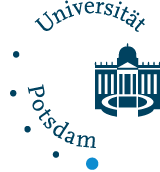Student Teachers’ Reflection on Sustainability - how to Diagnose and Foster student teachers’ reflective thinking on ESD in Higher Education
Project description:
Global change, large-scale migration or a digital shared economy – the challenges of our modern world require today’s students to deeply reflect on processes or situations. This is why reflective thinking is a key competence in Education of Sustainable development (ESD) and for the implementation of the sustainable development goals (UNECE Strategy for ESD, 2012; UNESCO, 2017).
However, prior studies found that students in high school show tremendous differences in the ability to reflect on issues of sustainability (Brendel, 2017). In order to facilitate students’ reflective thinking competencies (Dewey, 1933, 1997), geography teachers themselves must be capable of deeper reflective thinking in the first place.
This is why this study investigates which levels of reflective thinking student teachers achieve in geographic higher education. The aim of this study is to comprehend to which extent student teachers reflect on sustainability and how educators can foster their reflective thinking performance.
Our study is based on the analysis of two courses on education for sustainable development held in 2015 and 2016 at the Institute of Geography Education (University of Muenster, Germany). Over the course of the semester, we asked the 35 students to reflect on the topics discussed in class by writing an individual weblog article in their personal weblog.
In order to determine the level of reflective thinking achieved in each weblog article we used a multi-stage model of reflective thinking (Bain, Ballantyne, & Packer, 1999; Brendel, 2017; Chen, Wei, Wu, & Uden, 2009) in an exploratory qualitative approach (thematic coding and scaled structuring by Mayring, 2000, 2010). Additionally, we analyzed factors which influence student teachers’ reflective performance in order to detect strategies to facilitate their reflection on sustainability.
Project partners:
Prof. Dr. Nina Brendel, Institute of Geography, University of Potsdam
Prof. Dr. Gabriele Schrüfer, Institute of Geography Education, University of Münster
Project timeline:
Starting 2015
Contact:
Prof. Dr. Nina Brendel
